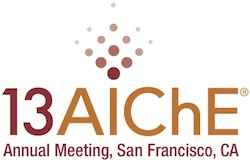

Converting carbon dioxide to vehicle fuel has the potential to reduce future dependence on fossil fuels. In effect a carbon neutral fuel cycle is created: carbon dioxide is captured and converted to fuel then that fuel is burned to form carbon dioxide. The challenge is in finding processes capable of converting the carbon dioxide efficiently using renewable energy sources. 4CU is a 4.5 year , £5.7m collaborative project between the University of Sheffield , Queens University Belfast , University College London and Manchester University. It is the first project of its kind and aims to investigate carbon capture and utilisation at a systems level , including comprehensive life cycle and process analyses; at a detailed technology level , including several process routes; and at a micro level , using quantum mechanical and classical computational modelling techniques. As an example system we have chosen the anaerobic digestion of wet waste , followed by CO2 capture using both novel processes and chemicals: microbubble systems and ionic liquids , including those that are liquid , supported and solid. The CH4 stream will be burned in a conventional CHP , the CO2 stream from which will be captured using similar methods to above. Conversion of the captured CO2 is then investigated using several different technologies: electrocatalysis , plasmolysis and catalysis. An overview of the project , including preliminary results , will be presented. High temperature co-electrolysis of steam and carbon dioxide using a solid oxide cell (SOC) has been shown to effectively produce syngas (CO and H2) , which can then be converted to fuel using Fischer Tropsch technology. 4CU Sub Project 5 concentrates on fundamental understanding and materials advances for optimising the co-electrolysis process. Results from in situ spectroscopy , including Raman and DRIFTS , as well as thermal imaging and impedance characterisation will be presented.
